ESG
Tennessee Taking Lead In Protecting Civil Rights And Free Enterprise—And Stopping Political Debanking
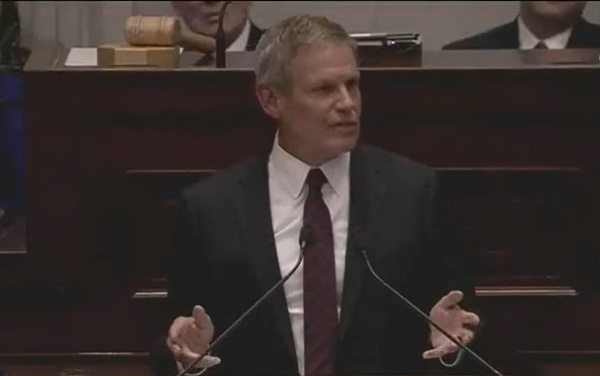
Tennessee Gov. Bill Lee
From the Daily Caller News Foundation
By ERIC BLEDSOE
Last week, Tennessee Gov. Bill Lee (R.) signed into law a first-of-its-kind ban on politicized debanking. Sponsored by Rep. Jason Zachary (R.) and Senate Majority Leader Jack Johnson (R.), HB 2100 will prohibit the nation’s largest banks from discriminating against individuals, businesses, and non-profits for their political and religious views.
The new law is a landmark reform to stop large banks from imposing political litmus tests on Americans.
This legislation (HB 2100) is, of course, a reaction to the trend of the largest financial institutions creating partisan barriers to Americans’ access to financial services. Last year, Bank of America closed the deposit and credit card accounts of Memphis-based non-profit Indigenous Advance Ministries. The organization works with Ugandan widows and orphans to provide for their basic needs through Christian charity. Bank of America refused to give Indigenous Advance a reason why they closed the accounts—just that they no longer wanted to work with their “business type.”
Indigenous Advance’s experience is like what the National Committee for Religious Freedom (NCRF) faced when JPMorgan Chase closed their accounts. NCRF promotes religious liberty for Americans of all religious faiths. Chase said it would restore NCRF’s accounts if it disclosed a list of its donors, told the bank which political candidates it intended to support, and sent them the criteria NCRF uses to decide who they want to support politically. NCRF, out of respect for their donors’ right to privacy, declined.
John Eastman, past attorney for former President Donald Trump, was debanked twice at the end of last year by Bank of America and USAA. Again, the banks provided little to no explanation for the sudden closures. Eastman told the Daily Caller that the banks said it was their policy to not provide any further information. Banks stonewalling their customers on why they close their accounts is alarmingly becoming a pattern.
In December 2022, Wells Fargo abruptly closed the personal and business accounts of Brandon Wexler, a Florida-based gun dealer. The bank’s only explanation was a brief mention that it was due to their review of account risk. Wexler had a personal account with Wells Fargo for 25 years and a business account for 14 years. One instance of an account closing might not be worthy of attention, but more and more examples like these are becoming more common. And the only common thread, besides banks refusing to explain their actions, is that the targets of debanking hold political and religious views unpopular on Wall Street and Pennsylvania Avenue. This does not appear to be a policy at one bank, but an unspoken policy across the industry. Commenting on Wells Fargo’s action against him, Wexler said, “I’ve been with them for 25 years,” […] “I’m a professional fireman. I do everything the right way. It’s messed up.”
But large banks debanking individuals and non-profits is not the full extent of politically motivated financial service providers’ discrimination. In September, Tennessee Attorney General Jonathan Skrmetti sent a letter sent a letter to financial service providers who are signatories to the Net Zero Financial Service Providers Alliance (NZFSPA) warning them that their environmental, social, and governance (ESG) strategies may be in violation of antitrust and consumer protection laws. Both state and federal laws prohibit coordinated or collaborative efforts between corporations to restrict trade or commerce. All members of NZFSPA agree to “(a)lign all relevant services and products to achieve net zero greenhouse gas emissions by 2050 or sooner, scaling and mainstreaming Paris Agreement-alignment into the core of our business.” Though the 27 members of NZFSPA are supposed competitors in the financial services market, their joint commitment to restrict sectors of the economy like fossil fuel is clearly a coordinated effort.
Large financial institutions’ boycott of fossil fuel and discriminatory actions against individuals and non-profits for their religious or political views may seem disconnected at first. But those following the ESG movement won’t be surprised to see these politically motivated efforts across multiple sectors. Last month, Montana Attorney General Austin Knudsen sounded the alarm over these radical policies to Wells Fargo CEO Charles Scharf with the support of 15 other state attorneys general. A member of the Net Zero Banking Alliance (NZBA), Wells Fargo has committed, alongside 143 other banks, to implement ESG policies. In the letter, the attorneys general noted that Wells Fargo has a record of debanking Republican candidates and the firearms industry, imposing race- and gender-based quotas on credit customers, and publicly committing to implement radical climate standards on the energy industry.
Leftist activists realize they cannot accomplish such a radical agenda of eroding individual rights and a free economy through the ballot box. ESG is a political tool that enables the far left to bypass the democratic process to will their worldview onto Americans’ lives. In response, policymakers and other stakeholders must strengthen and enforce civil liberties protections, consumer rights, and antitrust laws, so that political activists cease willing their agenda on citizens.
Fortunately, states like Tennessee are taking the lead in protecting civil rights and free enterprise.
Eric Bledsoe is a Senior Policy Fellow at the Foundation for Government Accountability.
The views and opinions expressed in this commentary are those of the author and do not reflect the official position of the Daily Caller News Foundation.
Business
ESG Puppeteers
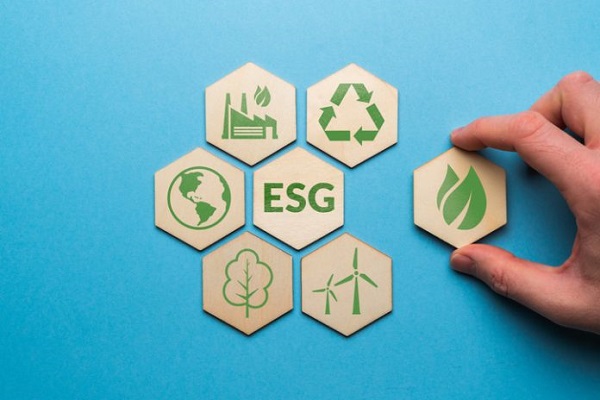
From Heartland Daily News
By Paul Mueller
The Environmental, Social, and Governance (ESG) framework allows a small group of corporate executives, financiers, government officials, and other elites, the ESG “puppeteers,” to force everyone to serve their interests. The policies they want to impose on society — renewable energy mandates, DEI programs, restricting emissions, or costly regulatory and compliance disclosures — increase everyone’s cost of living. But the puppeteers do not worry about that since they stand to gain financially from the “climate transition.”
Consider Mark Carney. After a successful career on Wall Street, he was a governor at two different central banks. Now he serves as the UN Special Envoy on Climate Action and Finance for the United Nations, which means it is his job to persuade, cajole, or bully large financial institutions to sign onto the net-zero agenda.
But Carney also has a position at one of the biggest investment firms pushing the energy transition agenda: Brookfield Asset Management. He has little reason to be concerned about the unintended consequences of his climate agenda, such as higher energy and food prices. Nor will he feel the burden his agenda imposes on hundreds of millions of people around the world.
And he is certainly not the only one. Al Gore, John Kerry, Klaus Schwab, Larry Fink, and thousands of other leaders on ESG and climate activism will weather higher prices just fine. There would be little to object to if these folks merely invested their own resources, and the resources of voluntary investors, in their climate agenda projects. But instead, they use other people’s resources, usually without their knowledge or consent, to advance their personal goals.
Even worse, they regularly use government coercion to push their agenda, which — incidentally? — redounds to their economic benefit. Brookfield Asset Management, where Mark Carney runs his own $5 billion climate fund, invests in renewable energy and climate transition projects, the demand for which is largely driven by government mandates.
For example, the National Conference of State Legislatures has long advocated “Renewable Portfolio Standards” that require state utilities to generate a certain percentage of electricity from renewable sources. The Clean Energy States Alliance tracks which states have committed to moving to 100 percent renewable energy, currently 23 states, the District of Columbia, and Puerto Rico. And then there are thousands of “State Incentives for Renewables and Efficiency.”
Behemoth hedge fund and asset manager BlackRock announced that it is acquiring a large infrastructure company, as a chance to participate in climate transition and benefit its clients financially. BlackRock leadership expects government-fueled demand for their projects, and billions of taxpayer dollars to fund the infrastructure necessary for the “climate transition.”
CEO Larry Fink has admitted, “We believe the expansion of both physical and digital infrastructure will continue to accelerate, as governments prioritize self-sufficiency and security through increased domestic industrial capacity, energy independence, and onshoring or near-shoring of critical sectors. Policymakers are only just beginning to implement once-in-a-generation financial incentives for new infrastructure technologies and projects.” [Emphasis added.]
Carney, Fink, and other climate financiers are not capitalists. They are corporatists who think the government should direct private industry. They want to work with government officials to benefit themselves and hamstring their competition. Capitalists engage in private voluntary association and exchange. They compete with other capitalists in the marketplace for consumer dollars. Success or failure falls squarely on their shoulders and the shoulders of their investors. They are subject to the desires of consumers and are rewarded for making their customers’ lives better.
Corporatists, on the other hand, are like puppeteers. Their donations influence government officials, and, in return, their funding comes out of coerced tax dollars, not voluntary exchange. Their success arises not from improving customers’ lives, but from manipulating the system. They put on a show of creating value rather than really creating value for people. In corporatism, the “public” goals of corporations matter more than the wellbeing of citizens.
But the corporatist ESG advocates are facing serious backlash too. The Texas Permanent School Fund withdrew $8.5 billion from Blackrock last week. They join almost a dozen state pensions that have withdrawn money from Blackrock management over the past few years. And last week Alabama passed legislation defunding public DEI programs. They follow in the footsteps of Florida, Texas, North Carolina, Utah, Tennessee, and others.
State attorneys general have been applying significant pressure on companies that signed on to the “net zero” pledges championed by Carney, Fink, and other ESG advocates. JPMorgan and State Street both withdrew from Climate Action 100+ in February. Major insurance companies started withdrawing from the Net-Zero Insurance Alliance in 2023.
Still, most Americans either don’t know much about ESG and its potential negative consequences on their lives or, worse, actually favour letting ESG distort the market. This must change. It’s time the ESG puppeteers found out that the “puppets” have ideas, goals, and plans of their own. Investors, taxpayers, and voters should not be manipulated and used to climate activists’ ends.
They must keep pulling back on the strings or, better yet, cut them altogether.
Paul Mueller is a Senior Research Fellow at the American Institute for Economic Research. He received his PhD in economics from George Mason University. Previously, Dr. Mueller taught at The King’s College in New York City.
Originally posted at the American Institute for Economic Research, reposted with permission.
Business
Saudis evict locals with lethal force to build ‘green’ city in line with globalist goals: report
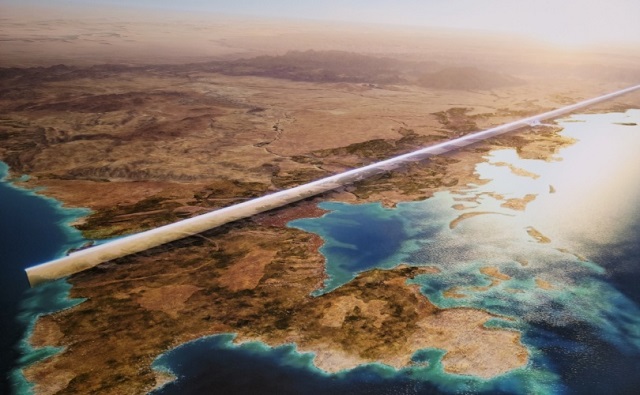
From LifeSiteNews
One villager who refused to relinquish his property reportedly was killed and 47 who wouldn’t leave have been arrested during the building of ‘The Line.’
Saudi Arabian officials have reportedly allowed the use of lethal force against local villagers to clear land to construct the “green” city named ‘The Line’ that is being built in conformity with globalist agenda-linked 2030 green plans with help from Western-based construction firms.
As per a recent BBC report, former Saudi Arabia intelligence officer Col Rabih Alenezi, who is now in exile in the United Kingdom for fear of his security, noted he was given orders to evict villagers from a local tribe to clear land for the ‘The Line’ project.
Reportedly, one person was shot and killed after refusing to leave the area. Abdul Rahim al-Huwaiti refused to let a land registry committee value his property and was shot by Saudi authorities one day later, when the clearance mission to evict the villagers was taking place. It was reported that he had posted videos on social media protesting the evictions.
As noted by the BBC, the Saudi state security at the time claimed that al-Huwaiti fired on security and that he was then shot in retaliation. However, human rights groups have said he was killed for refusing to leave the area and comply with eviction orders.
While the BBC noted that it was not able to “independently verify Col Alenezi’s comments about lethal force,” it said a “source” who was familiar with the inner workings of Saudi intelligence told them that Alenezi’s testimony about the clearance mission, as well as the details about it, were accurate in terms of that such clearance missions entail.
Another 47 villagers have been arrested for not going along with evictions, many of them being leveled terrorism-related charges.
Alenezi noted that he does not regret his decision to ignore his clearance orders for the project, saying, “Mohamed Bin Salman will let nothing stand in the way of the building of Neom.”
“I started to become more worried about what I might be asked to do to my own people,” he noted.
‘The Line’ is the flagship “green” project of what is known as Neom, a $1.5 trillion development on the area’s Red Sea. It is being built as part of Saudia Arabia’s 2030 strategy, which looks to move the kingdom’s economy away from oil and its vast reserves.
‘The Line’ is in lockstep with United Nations’ 2030 Agenda for Sustainable Development, which includes phasing out coal-fired power plants, reducing fertilizer usage, and curbing natural gas use over the coming decades.
The reduction and eventual elimination of the use of so-called “fossil fuels” and a transition to unreliable “green” energy has been pushed by the World Economic Forum (WEF), the globalist group behind the socialist “Great Reset” agenda that also promotes population control.
“The Line’ itself is a 170-kilometer-long “car-free” city that is in the northwest of the Gulf country, according to renderings. It will “run into the Red Sea,” where an extension of its structure will serve as a port for ships.
The Neom project is being built by dozens of global construction companies, many of them Western based. According to an analysis conducted by the BBC, satellite images show that three villages’ schools, and hospitals have been demolished to make way for the project.
Future of ‘Dystopian’ project in doubt
‘The Line’ project is being built based on the Saudi Arabian legal system, which is mostly based on Muslim sharia law that criminalizes anyone who “challenges, either directly or indirectly, the religion or justice of the King or Crown Prince. According to Amnesty International, two of 81 men executed by the Saudi Arabian government in 2022 were “convicted of crimes related to their participation in violent anti-government protests.”
When plans for ‘The Line’ were revealed, its promo video noted, “For too long, humanity has existed within dysfunctional and polluted cities that ignore nature. Now, a revolution in civilization is taking place.”
However, the future of the 170-kilometer-long project remains in doubt.
As per a recent Bloomberg report, it appears that only a 2.4-kilometer portion will be completed by 2030, according to a source familiar with the project.
Plans to have 1.5 million residents living in ‘The Line’ will not pan out as planned, sources said, and it is expected there will be less than 300,000 when the project finally comes online.
Some commentators slammed the project as “dystopian,” with one describing it as a “blatant greenwashing PR exercise by the heads of this rotten regime,” pointing out that “it’s an attempted distracting cop-out” since “Saudi Arabia is still at the very bottom for human rights (just pick next to women, any minority).”
Tech blog Engadget has raised concerns that The Line “is expected to be loaded with countless sensors, cameras, and facial recognition technology that in such a confined space could push government surveillance to almost unthinkable levels.”
-
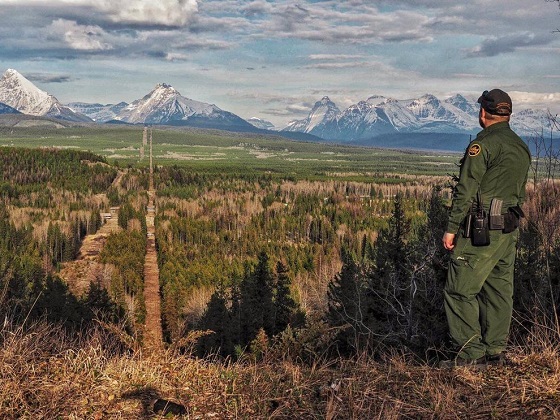
 Crime2 days ago
Crime2 days agoThe US Canadian border: Greatest number of terrorist watch list individuals being apprehended at northern border
-

 Economy18 hours ago
Economy18 hours agoCanadians experiencing second-longest and third steepest decline in living standards in last 40 years
-

 COVID-192 days ago
COVID-192 days agoNIH Quietly Altered Definition For Gain-Of-Function Research On Its Website, Former Fauci Aide Confirms
-
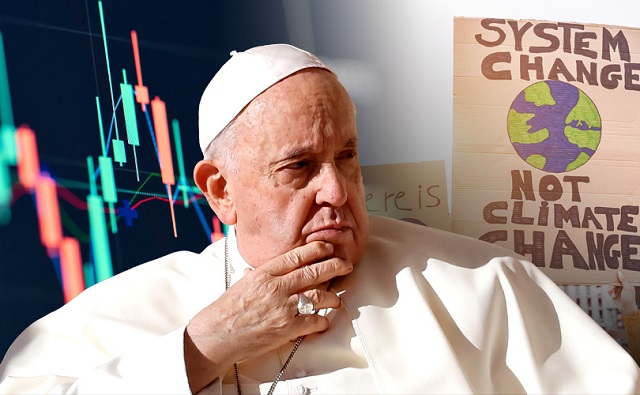
 Energy2 days ago
Energy2 days agoPope Francis calls for ‘global financial charter’ at Vatican climate change conference
-

 Opinion21 hours ago
Opinion21 hours agoOrdinary working Canadians are not buying into transgender identity politics
-
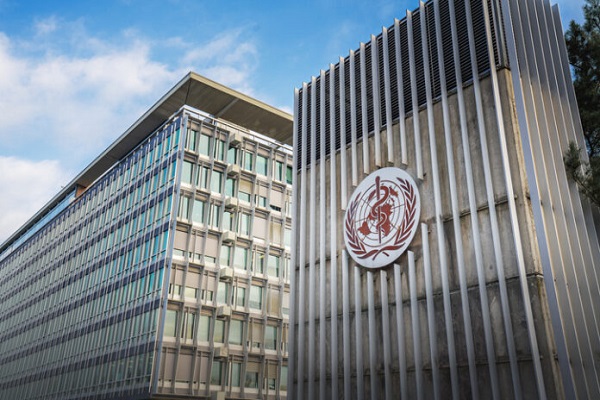
 Great Reset19 hours ago
Great Reset19 hours agoBiden Administration Eager to Sign WHO Pandemic Treaty
-

 Energy21 hours ago
Energy21 hours agoNew Report Reveals Just How Energy Rich America Really Is
-

 Economy18 hours ago
Economy18 hours agoFeds spend $3 million to fly 182 politicians and bureaucrats to climate conference







